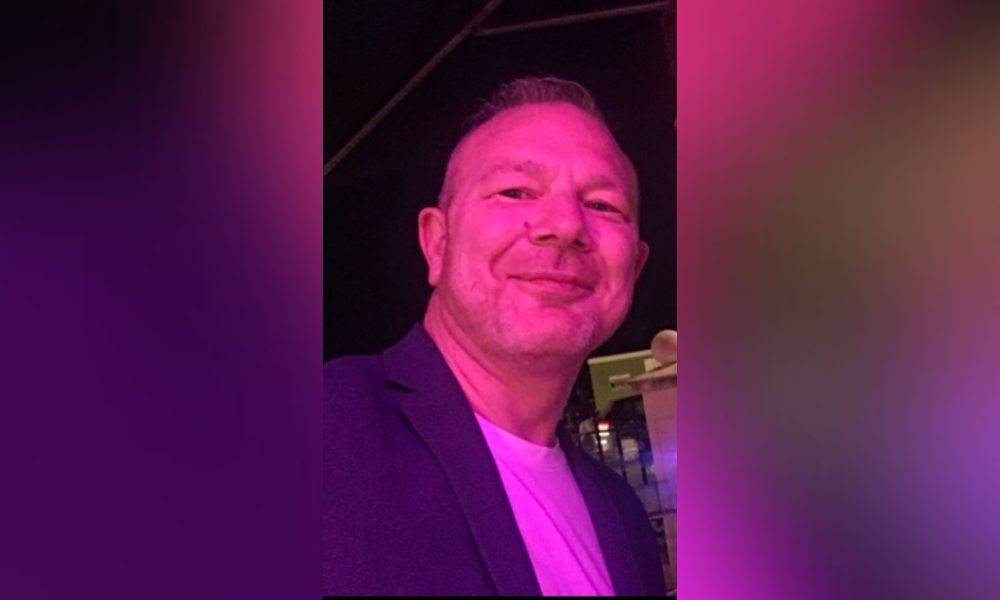
Senior HR business partner on the importance of celebrating Pride all year round

Pride is for life, not just for June. However, the month does serve as an apt reminder of what true allyship with the LGTBQ+ community looks like.
For Dean Piggott, he’s thankful his organization – hospitality and brewery giant Greene King – takes Pride so seriously. As a senior HR business partner, as well as co-chair of the Village Greene — Greene King’s LGBTQ+ Employee Led Inclusion Group - Piggott says a lot of planning goes into their Pride Month.
“We don't really have a blueprint that we roll out each year – however, we put a lot of thought into it,” he tells HRD. “The most important aspect of this is the messaging – what do we want to say? And then it comes down to the purpose behind that messaging, ensuring we have authenticity. From there, we roll it out our people.”
Pride is a main component for a lot of companies’ strategies in June, with organizations looking for ever more inclusive ways to celebrate their LGTBQ+ staff. According to data from the Harvard Business Review, LGTBQ+ people are 84% more likely to voice pride in their employer if it’s known to be ally-inclusive. Despite this, one in five organizations don’t have any LGTBQ+ policies in place – and, of those with policies, just one in three HR managers say they’ve updated them in the past 12 months.
The answer lies in with involving your LGTBQ+ people – not deciding for them what they want to see or what support they need. And, with over 39,000 employees, Greene King has a lot of people to include. This all begins with the “hygiene element”, according to Piggott.
“By that I mean when we reword or recreate or rewrite a policy – because in today’s age, policies aren’t evergreen – we have to ensure that everyone in the individual inclusion groups sees it, digests it and understands it,” he tells HRD.
“Fundamentally, we need to ensure that the language is correct and that we’re not inadvertently being discriminatory. Equally important is upskilling senior management on all inclusion policies. After all, the worst thing you can do is roll out a corporate message that totally misses the mark.”
That, sadly, is something we can all testify to. When companies make sweeping pushes towards the LGTBQ+ community that just don’t land, it can make for uncomfortable viewing.
In 2019, retail giant Marks and Spencer’s divided public opinion when it launched a Pride take on the classic BLT sandwich – turning it into an LGBT (lettuce, guacamole, bacon and tomato) sandwich. While some people saw the funny side, others weren’t too keen on being equated with a condiment.
I just saw on tiktok that M&S bought out a LGBT sandwich, hi I now identify as a lettuce🤝🥬 pic.twitter.com/Xc73DOoCyc
— •emmie🖤 (@EmilyKimberleyx) June 5, 2021
A 2023 report from Dynata and CampaignLive found that while one in 10 LGTBQ+ people have been targeted by adverts based off of their identity, only one in five of them deemed it to be a positive experience. Respondents in the report claim that if companies want to make a real difference, they should avoid stereotyping (50%), be more authentic in depictions of LGBTQ+ people (44%), and involve the community in the planning process (37%).
As Piggott says, this all begins with collaboration – and championing true allyship. It’s something he defines as standing in front rather than standing alongside.
“For example, let’s say something discriminatory occurs in a meeting,” adds Piggott. “A true ally is someone that puts their hand up first and says, ‘Hey, that’s not right’ – rather than waiting for the affective party to say something and just agreeing with them. It’s almost like being at the front of the battle charge.
“I know it’s very easy to make a mistake and inadvertently use the wrong language. The true ally isn't afraid to put their hand up, point that out and be the one to be say, ‘I'm not comfortable with that’.”
True allyship is hard to come by because it really demands individual participation. Data from McKinsey found that two-thirds of LGBTQ employees report feeling like the “only” in their workplace – with 45% adding that they feel they have to be careful when discussing their personal lives with colleagues. The same report found that LGBTQ+ employees are 13% more likely to consider themselves “true allies” to others at work – spending much of their spare time promoting DEI events.
Looking ahead, Piggott says it’s about more than initiatives and new pushes. He wants to see people collaborating with each other much more.
“I want to see inclusive employers talking to each other more,” says Piggott. “There’s so many networking groups out there – but I think we can go further in sharing best practices between us. There’s companies that are just starting out on their inclusivity journey, and those that are well on the way – reaching across everyone gives a bit more comfort to the messaging.”
It also brings with it lobbying power – something that wouldn’t go amiss in the current political and socioeconomic climate. The Ugandan parliament recently passed the Anti-Homosexuality Bill of 2023 – imposing the death penalty for “aggravated homosexuality” – even mandating that people report on each other if they have suspicions. What’s more, Hungary passed a “Don’t say gay” law – banning any discussion of LGBTQ+ topics in schools and on children’s TV.
For inclusive employers, it’s the time to rally together.
“I believe that if inclusive businesses work together, we can steer the ship so to speak,” says Piggott. “We are quite powerful – and if we harness that power into boosting inclusivity across the board, there’s no limit on what we can achieve.”